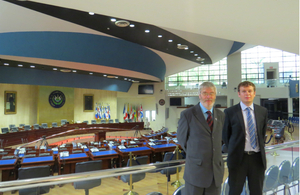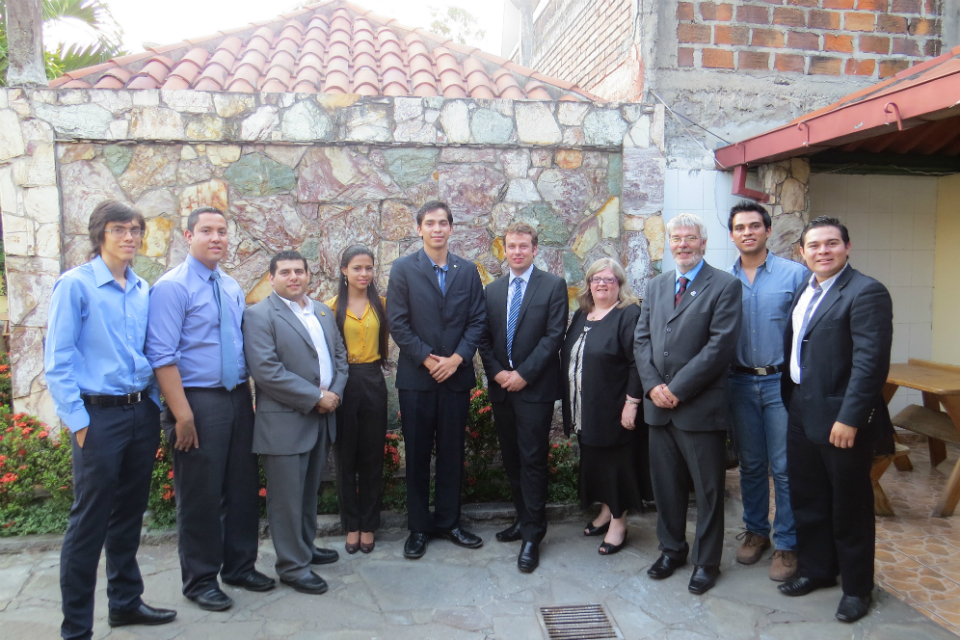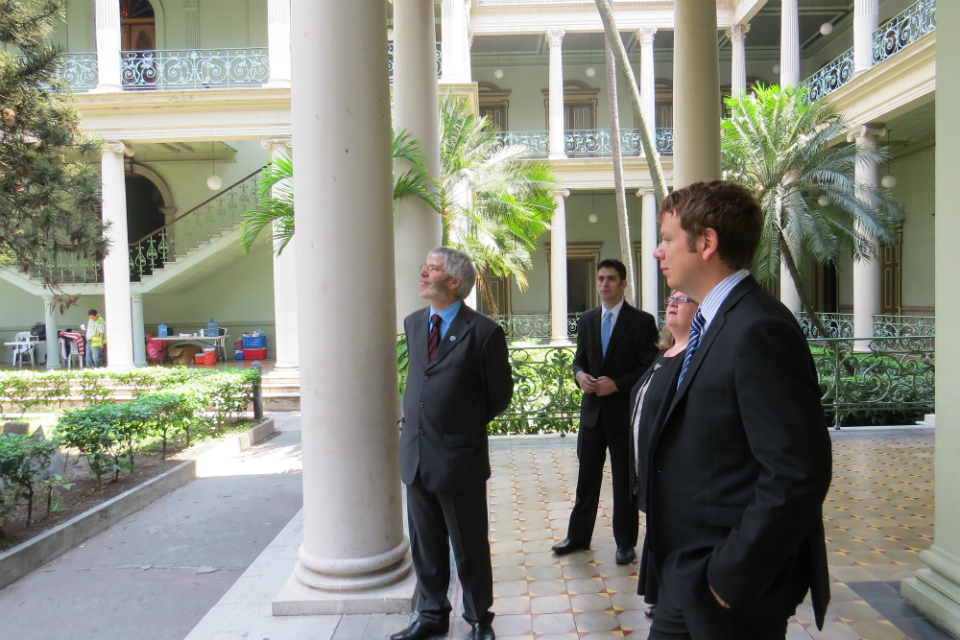First official visit from the Falkland Islands to El Salvador
Gavin Short, Member of the Legislative Assembly, and Stacy Bragger, a young radio journalist, visited El Salvador from 9 to 11 April 2013.

Gavin Short and Stacy Bragger visiting the "Salón Azul" of the Legislative Assembly in San Salvador
We were delighted to host the first ever official visit from the Falkland Islands to El Salvador when Gavin Short, Member of the Legislative Assembly, and Stacy Bragger, a young radio journalist, visited from 9 to 11 April 2013. The visit came on the back of the referendum held in the Falkland Islands in March 2013 in which 99.8% of those who participated voted to maintain the Islands’ current political status as a British Overseas Territory. What does that mean? In the case of the Falklands it means that they have their own government; parliament; manage their own economy; and have responsibility for all internal matters, eg education, health, etc. The United Kingdom has responsibility for foreign affairs and defence of the Islands. In meetings and events in San Salvador, Gavin and Stacy were able to present the Falkland Islanders’ view of the situation directly for the first time. As Gavin said, they were not asking anyone to choose between support for the UK or Argentina, they were asking them to support the Islanders’ right to self-determination.

Gavin Short and Stacy Bragger with members of Youth organisations after online Debate
There was a great deal of interest in day-to-day life in the Islands, which have a population of just under 3,000. Many of those Gavin and Stacy met were surprised to learn that there is an Assembly of 8 Deputies, Gavin being one of them. Gavin explained that the economy of the Islands was strong – they have no debt for example – but it also has a certainty fragility as it is currently based on three sectors – fishing, agriculture and tourism. They very much hope that in the future hydrocarbons will be added which will provide much needed additional income, all of which would go to the Falkland Islands government, not to the UK government. It would be used to invest in the infrastructure in the Islands and also to create a Sovereign Wealth Fund so that future generations would also benefit when the oil has run out.

Visiting the "Palalcio Nacional" of El Salvador
Gavin also explained that his family has been in the Falkland Islands for 163 years and there is no implanted population. At some point in the future the Islands might become independent but that is not an option at present. With the small population and the limited income, they simply do not have the resources to mount their own defence against what they perceive as a continued threat from Argentina. When asked what an ideal solution to the situation would look like from their point of view, Gavin and Stacy said that they wanted to have normal relations with Argentina as they had with other nearby neighbours and live in an atmosphere of peace. In the past the Islands had agreements with Argentina, including on hydrocarbons, but the present Argentine government withdrew from all of these and for more than 10 years had refused to speak to representatives from the Falkland Islands. They would be happy to speak to Argentina but made it clear that the issue of sovereignty was not negotiable. “These are our Islands”, said Gavin, “and they do not belong to anyone else.”